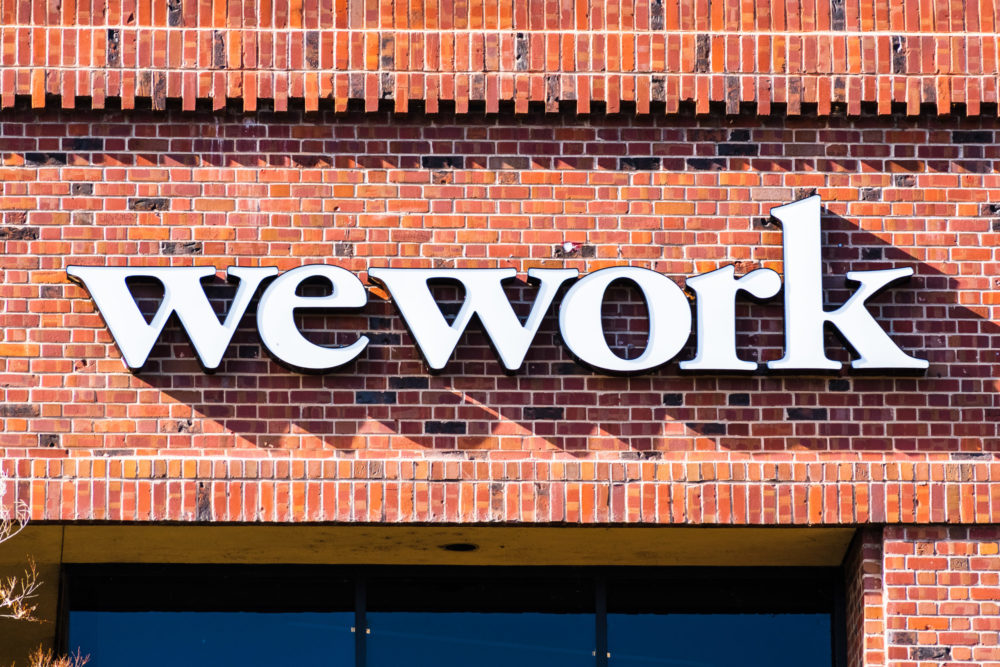It was only a year ago that WeWork was flying high. Businesses everywhere were taking notice of the real estate unicorn, trying to learn a thing or two from the hot new brand preparing for a highly-anticipated IPO after being valued at $47bn.
Since then, to say the least, WeWork has run into some difficulties. The company had its IPO withdrawn, CEO Adam Neumann has resigned and plans for thousands of redundancies were announced. That’s not to mention significant legal scrutiny from the U.S. Securities and Exchange Commission and a new valuation at just $8bn. In light of WeWork’s meltdown, here are the four top takeaways for businesses to take heed of.
1. One size doesn’t fit all
WeWork’s initial success shows that start-ups, established businesses and freelancers alike are certainly for the notion of a co-working space, and it’s easy to see why. This model of working offers access to quality office space at a fraction of the usual cost – especially in notoriously expensive cities like New York, San Francisco and London. Co-working spaces also come fully equipped with all the resources and amenities required, as well as offering a flexible tenancy, so there’s no need to commit to a long-term lease.
Though its co-working aspect was clearly appealing, WeWork’s particular office culture is not for everyone. Designed for millennial professionals and inspired by the vibrant Silicon Valley offices popularised by tech giants like Google and Facebook, WeWork’s position as a ‘community company’ meant its offices were nothing like typical iterations.
“Members are encouraged to mingle, network and leverage one another’s talents, frequently under the auspices of a corporate sponsor,” explained Laura Bliss, a reporter for The Atlantic who worked in a Brooklyn WeWork from March 2017. “Witness taco pop-ups promoting internet phone service; talk-therapy circles sponsored by a women’s activewear brand.” In addition to regular members-only events, WeWork offices typically offer other perks, such as alcohol on tap, free food, and foosball or ping pong tables.
This community spirit creates a workplace that’s far more social than the norm, which isn’t ideal for those who want to work without distractions. In fact, increasing the risk of excessive snacking and drinks means this may even lead to an unhealthy workplace. There are more professional variations of this form of workspace, though, which strike a more even balance between collaboration and concentration. For example, serviced office providers Landmark offer club space membership, where clients are given unlimited access to professional business lounges that include social zones for chit chat, as well as private areas for independent, focused work.
2. Branding can only take you so far
“We wanted to build a community. A place you join as an individual, ‘me’, but where you become part of a greater ‘we’,” reads WeWork’s mission statement, which also emphasises the importance of ‘personal fulfillment’ and ‘community’. Enhanced by the vision and charisma of WeWork’s CEO, strong branding played a huge part in WeWork’s initial success, in spite of the arguably superficial nature of its offering. “Mr. Neumann would talk eloquently about creating the first ‘physical social network,’ a place where members could talk about jobs, family, love,” a New York Times reporter wrote. And even though one former WeWork editorial director now argues this is no different to ‘regular life’, Neumann skillfully presented his idea in a way that ‘sounded revolutionary’.
Even in retrospect, there’s no denying the strength of Neumann’s branding. However, no brand is bigger than its foundations, and many critics question whether a business can be sustainable without owning its real estate.
WeWork’s business model has laden it with long-term fixed expenses in premium office leases, while relying entirely on rent payments from its short-term clients. Members can also leave whenever they please, which means there’s no guarantee that the company will have the funding needed to pay its debts. Forbes contributor George Schultze deems this particularly risky considering the volatile nature of the economy, where the risk of a recession could cause more start-ups to decrease or fail, resulting in fewer potential WeWork clients. As such, he compares WeWork to ‘an insolvent bank with long term assets but short-term funding’.
Though branding is undoubtedly important, your main priority should be ensuring you have a viable business that’s set to make a profit. Be certain that all your numbers add up, and that you have a feasible plan for growth and prosperity, then focus on your branding.
3. Scale up at the right time
Growth is vital to all businesses, but WeWork demonstrated that expanding at the wrong time can be hugely damaging. Large investments made early on meant that the company had access to all the capital they needed to buy additional space, going from just nine offices in 2013 to 111 in 2016. Growth was even more rapid after Neumann met Masayoshi Son, the head of a Japanese conglomerate called SoftBank in 2017. Son’s firm had previously invested in brands like Uber and Brightstar and eventually invested $10.7bn in WeWork, reportedly telling Neumann that he wasn’t being ‘crazy enough’, convincing Neumann to continue expanding to over 830 locations. In early 2019, WeWork was rebranded as The We Company, housing additional initiatives including a co-living division called WeLive and a school for children called WeGrow.
However, these plans for growth didn’t take the magnitude of WeWork’s mounting losses into account. The company revealed losses of almost $2bn in 2018, and its financial situation looked even bleaker once its S-1 IPO filing was published.
WeWork hemorrhaged $900m during the first half of 2019, 25pc up on the year before, while the document also showed that in spite of increases in revenue, losses continued to grow. Investors had previously been hopeful that WeWork’s growth would result in huge profits, but that changed following the S-1, which worryingly read: “We have a history of losses and, especially if we continue to grow at an accelerated rate, we may be unable to achieve profitability at a company level for the foreseeable future.”
In light of the WeWork disaster, investors are set to change tack and prioritise their present earnings and cash flow over growth stocks. Therefore, it’s crucial your business is profitable before you start scaling up.
4. Your behaviour isn’t separate from your business
Though you may not think that your personal life has any bearing on your business activities, think again and look at the negative effect Neumann’s behaviour had on WeWork’s fate. His ambition and eccentricity attracted investors to him at first. With long, shaggy hair and a T-shirt and jeans uniform, he didn’t look like your average entrepreneur. It was undoubtedly entertaining when he proclaimed he would become ‘president of the world’, and the first trillionaire on Earth. However, things went downhill as he started to display unorthodox behaviour inside and outside of the workplace.
Reports emerged of Neumann cashing out $700m worth of WeWork shares before the company’s IPO, while he also leased property he owned out to the business and sold them the ‘We’ trademark for $5.9m, though he subsequently reversed the latter deal following criticism. The New York State Attorney General is currently investigating Neumann and WeWork over these incidents.
However, the final nail in Neumann’s coffin came in September 2019, when the Wall Street Journal published a shocking article exposing the CEO’s more scandalous behaviour. As well as detailing his extensive marijuana use, the feature claimed he continued to eat meat following his prohibition of meat-based meals from company expenses.
In addition, after announcing a layoff of 7pc of WeWork’s staff, he reportedly organised a live performance from Run-DMC’s Darryl McDaniels, laying on copious amounts of tequila for the occasion. In the wake of the exposé, Neumann resigned as CEO, saying: “While our business has never been stronger, in recent weeks, the scrutiny directed toward me has become a significant distraction”.
Instead of following Neumann’s bad example, take note of the stellar advice Airbnb CEO Brian Chesky has always followed: “Imagine everything you do will be on the cover of The New York Times, because one day it very well could be”.
Written by Landmark Space Ltd, creating professional workspaces for people who need a business-class experience.







